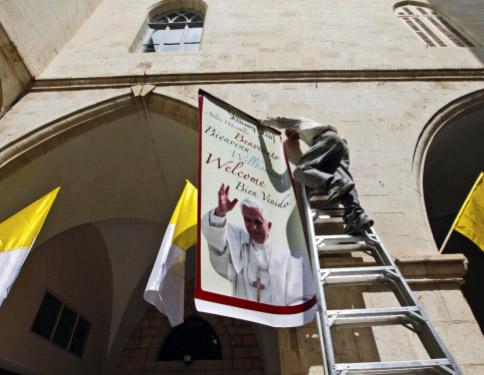Israeli President Shimon Peres harshly criticized U.N. Secretary-General Ban Ki-moon during their Wednesday meeting in New York.
The meeting took place against the backdrop of Mr. Ban’s personal behavior during last month’s Durban II conference and the U.N.’s recent report criticizing Israeli conduct in Gaza four months ago.
Addressing the Durban II conference, Mr. Peres told Mr. Ban he should have taken his entourage to visit Auschwitz instead of sitting by idly as Mahmoud Ahmadinejad delivered a speech devoted to the denial of the Holocaust.
Unlike the European representatives, the U.N. secretary-general listened attentively to the entire speech and did not leave the hall.
AdSys ad not found for news/world:instory –>
“I am ashamed,” Mr. Peres said.
Mr. Ban, in response, tried to tone down Mr. Peres’ harsh statements and said, in his defense, Mr. Ahmadinejad had misled him.
The secretary-general said he had sat with Mr. Ahmadinejad and drafted a moderate statement with him for an hour prior to his speech at the Geneva, Switzerland-based conference.
However, Mr. Ahmadinejad went up to the stage and ignored their agreement, delivering a speech denying the Holocaust instead.
Mr. Ban said his position as secretary-general prevented him from leaving the hall, but Mr. Peres rejected his explanation.
Mr. Peres said he felt a great shame that the U.N. had chosen Holocaust Memorial Day, the worst day in the Jewish consciousness, to give a platform to such a despicable man.
After their discussion about the Durban II conference, the meeting continued to be tense because of the U.N. report on the Israeli operation in Gaza, among other reasons.
Mr. Ban said he had attempted to tone down the report and had softened many problematic parts and extracted clauses that deviated from the report’s original purpose.
The Israeli president gave Mr. Ban a sharp rhetorical question, inquiring if the U.N. expected Israel to sit idly by, since more than 4,000 rockets were fired on Israel in the past three years.
He lambasted the report’s ignorance of Hamas’ activities, such as planting bombs in kindergartens, buildings and even U.N. facilities.
The secretary-general responded by saying the U.N. would not begin another inquiry into Operation Cast Lead, as the Gaza incursion is referred to by Israel, without the Jewish state’s consent.
Mr. Peres admitted Israel made some mistakes in the course if the operation and said Israel did not intend to deliberately kill civilians; however, he also said the Arabs who fire from Gaza do.
David Bedein can be reached at dbedein@israelbehindthenews.com






